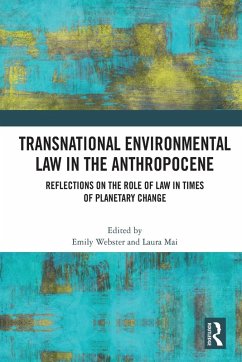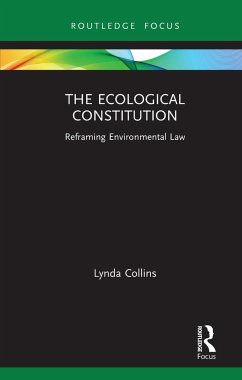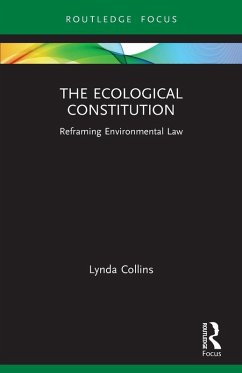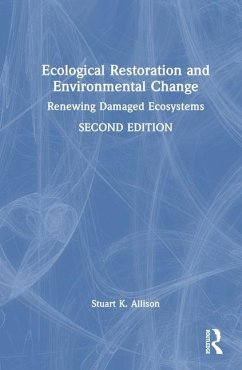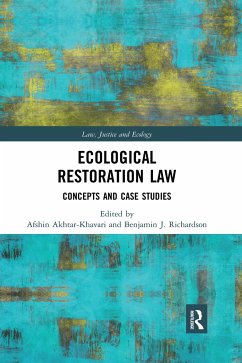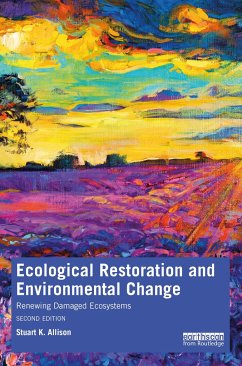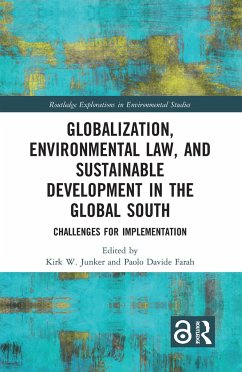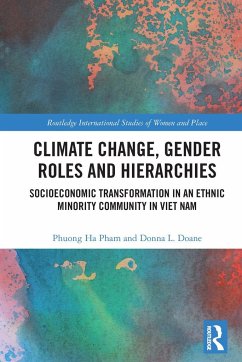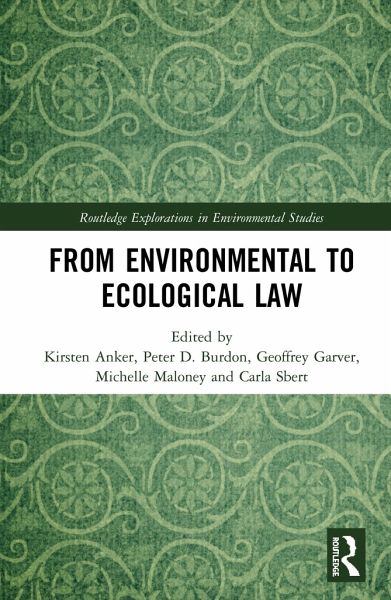
From Environmental to Ecological Law

PAYBACK Punkte
23 °P sammeln!
This book increases the visibility, clarity and understanding of ecological law. Ecological law is emerging as a field of law founded on systems thinking and the need to integrate ecological limits, such as planetary boundaries, into law.Presenting new thinking in the field, this book focuses on problem areas of contemporary law including environmental law, property law, trusts, legal theory and First Nations law and explains how ecological law provides solutions. Written by ecological law experts, it does this by 1) providing an overview of shortcomings of environmental law and other areas of...
This book increases the visibility, clarity and understanding of ecological law. Ecological law is emerging as a field of law founded on systems thinking and the need to integrate ecological limits, such as planetary boundaries, into law.
Presenting new thinking in the field, this book focuses on problem areas of contemporary law including environmental law, property law, trusts, legal theory and First Nations law and explains how ecological law provides solutions. Written by ecological law experts, it does this by 1) providing an overview of shortcomings of environmental law and other areas of contemporary law, 2) presenting specific examples of these shortcomings, 3) explaining what ecological law is and how it provides solutions to the shortcomings of contemporary law, and 4) showing how society can overcome some key challenges in the transition to ecological law.
Drawing on a diverse range of case study examples including Indigenous law, ecological restoration and mining, this volume will be of great interest to students, scholars and policymakers of environmental and ecological law and governance, political science, environmental ethics and ecological and degrowth economics.
Presenting new thinking in the field, this book focuses on problem areas of contemporary law including environmental law, property law, trusts, legal theory and First Nations law and explains how ecological law provides solutions. Written by ecological law experts, it does this by 1) providing an overview of shortcomings of environmental law and other areas of contemporary law, 2) presenting specific examples of these shortcomings, 3) explaining what ecological law is and how it provides solutions to the shortcomings of contemporary law, and 4) showing how society can overcome some key challenges in the transition to ecological law.
Drawing on a diverse range of case study examples including Indigenous law, ecological restoration and mining, this volume will be of great interest to students, scholars and policymakers of environmental and ecological law and governance, political science, environmental ethics and ecological and degrowth economics.





